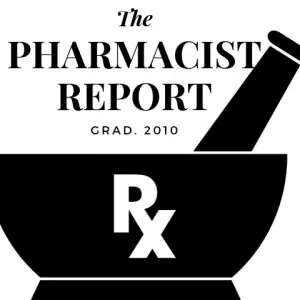Pharmacy, like a finely-tuned prescription, is a complex and multifaceted field that plays a vital role in the healthcare industry. As medication specialists, pharmacists are instrumental in helping people live healthier and happier lives, improving their overall health outcomes. With the constant evolution of the field, pharmacy offers a diverse range of career opportunities for individuals of all backgrounds, making it an ideal choice for those seeking a dynamic and rewarding career.
Pharmacists have traditionally been known to dispense medications and provide valuable advice to patients. However, with the emergence of novel pharmacy careers, the field has expanded to encompass a range of specializations, including clinical pharmacy, pharmaceutical research, and drug development. The diverse nature of the field means that pharmacists can work in a variety of settings, from hospitals and clinics to research laboratories and public health organizations.
As such, pharmacy presents a wealth of opportunities for creative minds looking to make a difference in the lives of others. In this article, we will explore the many career paths available in pharmacy and provide valuable resources for those seeking to advance their education and careers in this exciting field.
Career Opportunities
The field of pharmacy provides ample career opportunities for individuals from diverse backgrounds, enabling them to become medication specialists and positively impact people’s health and well-being. Pharmacists can specialize in various areas such as community pharmacy, hospital pharmacy, clinical pharmacy, research and development, and regulatory affairs.
Community pharmacists are responsible for dispensing medications, providing counseling to patients, and collaborating with other healthcare professionals. Hospital pharmacists work in a hospital setting and are responsible for preparing and dispensing medications to patients admitted to the hospital. Clinical pharmacists work in clinics and hospitals, where they provide direct patient care and manage medication therapy.
Research and development pharmacists work in the pharmaceutical industry, where they conduct research and develop new medications. Regulatory affairs pharmacists ensure that medications meet regulatory requirements and are safe for the public.
Pharmacy specializations offer different salary outlooks. According to the Bureau of Labor Statistics, the median annual salary for pharmacists in 2020 was $128,710, with the highest-paid pharmacists earning more than $170,240. Pharmacists working in the pharmaceutical and medicine manufacturing industry had the highest annual mean wage of $148,660, while those working in outpatient care centers had the lowest annual mean wage of $126,820.
Pharmacists specializing in research and development had a median annual salary of $126,120, while those specializing in clinical pharmacy had a median annual salary of $113,410. Community pharmacists had a median annual salary of $128,710, while hospital pharmacists had a median annual salary of $124,170. Overall, pharmacy careers offer competitive salaries and diverse opportunities for individuals interested in medication management and improving people’s health.
PharmD Admissions
Admissions requirements for PharmD programs vary depending on the institution. Generally, applicants must have completed a minimum of two years of undergraduate coursework, including specific prerequisites in biology, chemistry, physics, and mathematics. Some programs may require additional coursework or standardized test scores, such as the Pharmacy College Admissions Test (PCAT).
Additionally, many programs require applicants to have completed a certain number of hours of pharmacy experience, either through internships or volunteer work. PharmD program structures also vary, with some programs offering accelerated options for students who have completed a bachelor’s degree in a related field.
The length of the program typically ranges from four to six years, with the first two years focused on foundational coursework and the latter years focusing on clinical rotations and hands-on experience. Paying for education is an important consideration for anyone pursuing a PharmD degree, as the cost of tuition and other expenses can be significant.
Students may be eligible for scholarships, grants, or loans, and it is important to research and apply for these opportunities early in the application process.
Additional Resources
Resources for individuals interested in pursuing a PharmD degree include monthly insights on pharmacy admissions and careers, a pharmacist and academic advisor in Jamila Jorden, a glossary of pharmacy terminology, and a quiz to determine the best-fit pharmacy career. These resources are designed to provide guidance and support for individuals who are considering a career in pharmacy, and to help them make informed decisions about their education and career path.
Pharmacy career insights are an important part of these resources, as they provide individuals with a comprehensive understanding of the different career paths available in pharmacy. Additionally, diversity in pharmacy is an important topic that is addressed in these resources, as it is essential for the profession to reflect the communities it serves.
By providing access to these resources, individuals can gain a better understanding of the opportunities available to them in pharmacy, and can make informed decisions about their education and career goals.
Summary and Conclusion
Pharmacy is an essential field in healthcare that offers various career opportunities. Pharmacists can specialize in different areas of practice, such as ambulatory care, cardiology, community, compounding, geriatric, hospital, infectious disease, nuclear, oncology, pediatric, industry, poison control, psychiatric, veterinary, and emergency medicine pharmacy. Each specialty has its unique practice settings, educational requirements, patient populations, and personality traits. Pharmacists play a vital role in ensuring the safe and effective use of medications, providing patient education, and coordinating care with other healthcare professionals.
Pharmacy careers offer a wide range of opportunities for people with different interests and skills. The educational requirements for becoming a pharmacist are rigorous, but the career offers excellent job security, competitive salaries, and opportunities for professional growth. Pharmacists make a significant impact on patient health outcomes by providing medication expertise, counseling, and coordination of care. The pharmacy field continues to evolve, and pharmacists must be committed to lifelong learning to stay up-to-date with the latest advancements in their specialty areas. Overall, a career in pharmacy can be rewarding and fulfilling for those who are passionate about improving patient health and healthcare outcomes.
Frequently Asked Questions
What is the average salary for a pharmacist?
As of May 2020, the average salary for a pharmacist was $128,710 per year. However, industry trends suggest that there may be a decrease in salary due to factors such as automation and reimbursement changes.
How has the role of pharmacists changed in recent years?
Pharmacists have expanded their role in recent years to provide patient-centered care through collaboration opportunities with other healthcare professionals. They now offer medication therapy management, immunizations, and chronic disease management services, among others.
What are the biggest challenges facing the pharmacy industry?
The pharmacy industry faces challenges including rising drug prices, shortages, and increasing demand for services. Future innovations such as telepharmacy and precision medicine may help address these issues, but require investment and infrastructure development.
What kind of continuing education is required for pharmacists to maintain their license?
Pharmacists must complete continuing education requirements to maintain their license, typically ranging from 15-30 hours annually. This ensures they stay current on new drugs, treatments, and regulations to better serve patients and improve healthcare outcomes.
What is the job outlook for pharmacy technicians?
According to the Bureau of Labor Statistics, the job outlook for pharmacy technicians is positive, with a projected 4% growth rate from 2019-2029. Career advancement opportunities may include supervisory roles and expanded job responsibilities, such as compounding and inventory management.



